A beacon of the highest hopes of humanity: Angela Merkel’s legacy as Germany’s first female chancellor
Angela Merkel has been a guiding light of democracy on the international stage for 16 years. Sean O’Grady reflects on the elements that moulded the leader into the stable force of international diplomacy that she is

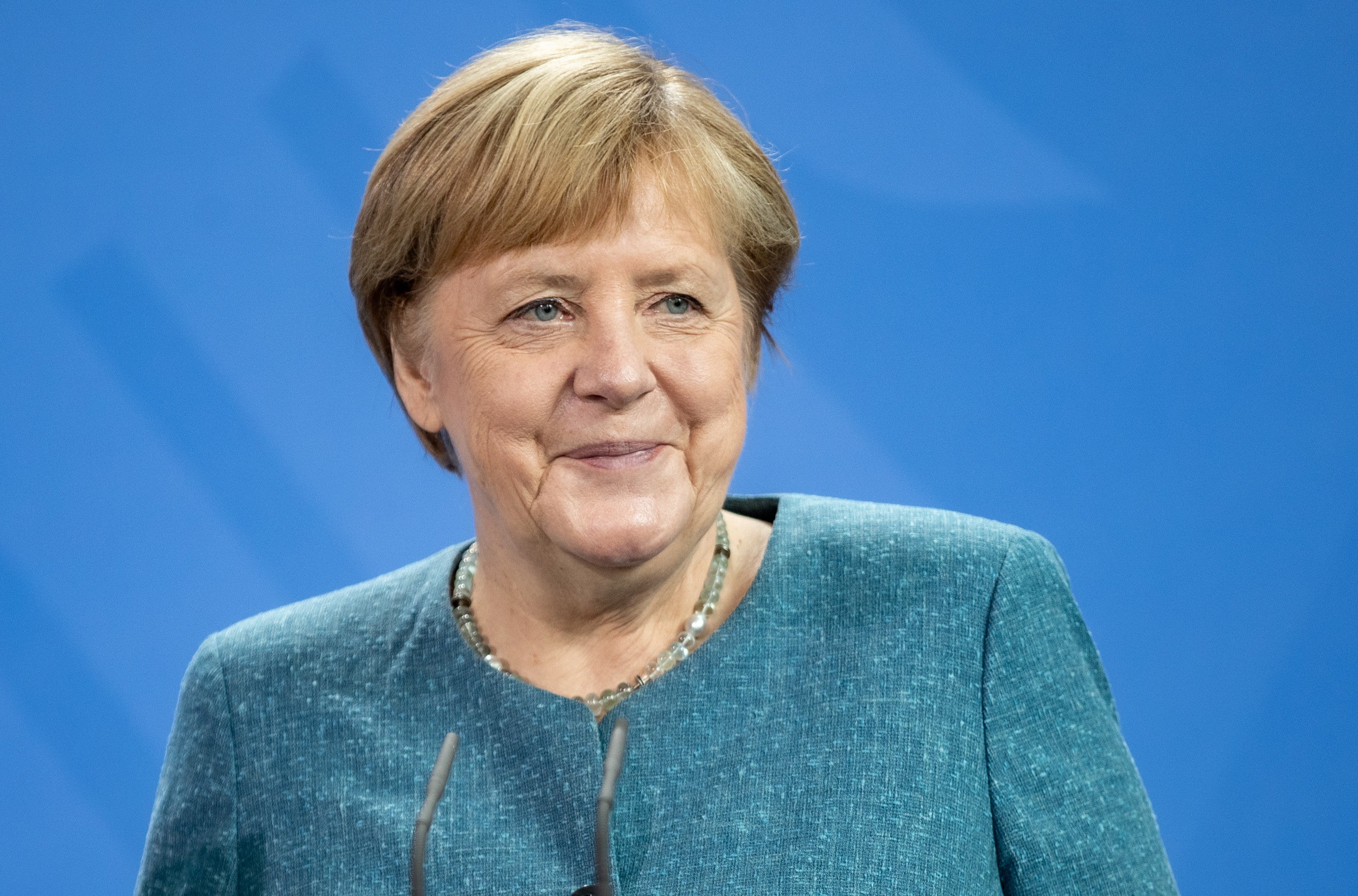
It is easy to see and say what Angela Merkel has made of her life in politics. The first female chancellor of Germany; the second longest serving, at almost 16 years, slightly less than her mentor Helmut Kohl, and a little more than the first chancellor of the post-war era, Konrad Adenauer; chancellor, then, since 2005 of Christian Democrat-led governments, and a stable presence in Europe and the world. For the past decade or so, as Europe has dealt with crisis after crisis – banking, euro, refugee, Brexit, climate – she has been “Mutti” to the whole continent as much as a mum to Germany itself, the Queen of Europe. During the Trump-era, the western world turned to her as a leader and proponent of liberal democratic values, and the old international order based on rules, Nato and the UN. She was a kind of antidote to Trump, an unpretentious beacon of the highest hopes of humanity, a bulwark against the wave of populism, and proof that the extremists and haters need not win. She told her people that “we can do this” when Germany admitted around a million Syrian refugees in 2015-16, and she beat off the neo-Nazis and survived. She kept Europe on track, for good or ill, through the traumas of Brexit. Unassuming as she is – in manner, speaking style and personality as remote from Trump, Boris Johnson or Emmanuel Macron as can be – she felt her duty was to defend the values she had championed through her long political career.
The abiding image of Merkel is that wonderful photograph that has her at the 2018 G7 summit, she reasoning with Trump, leaning over a desk at him, Macron and Shinzo Abe looking on, Trump with his arms crossed and his bottom lip out in a gesture of “America First” defiance. It was composed like a baroque religious allegory, and it showed at least that she wasn’t going to be bullied by him. Indeed, Trump’s arrival on the scene – a shock in 2016 which never stopped reverberating across the planet – prompted her to postpone the retirement she had planned for 2017, and to run for a further term of office. She won, albeit on a reduced vote and having to form a further “grand coalition” with the social democrats, but she was there to show the world that there was, and is, another way.
So we know – we can see for ourselves – what Angela made, but what made Angela?
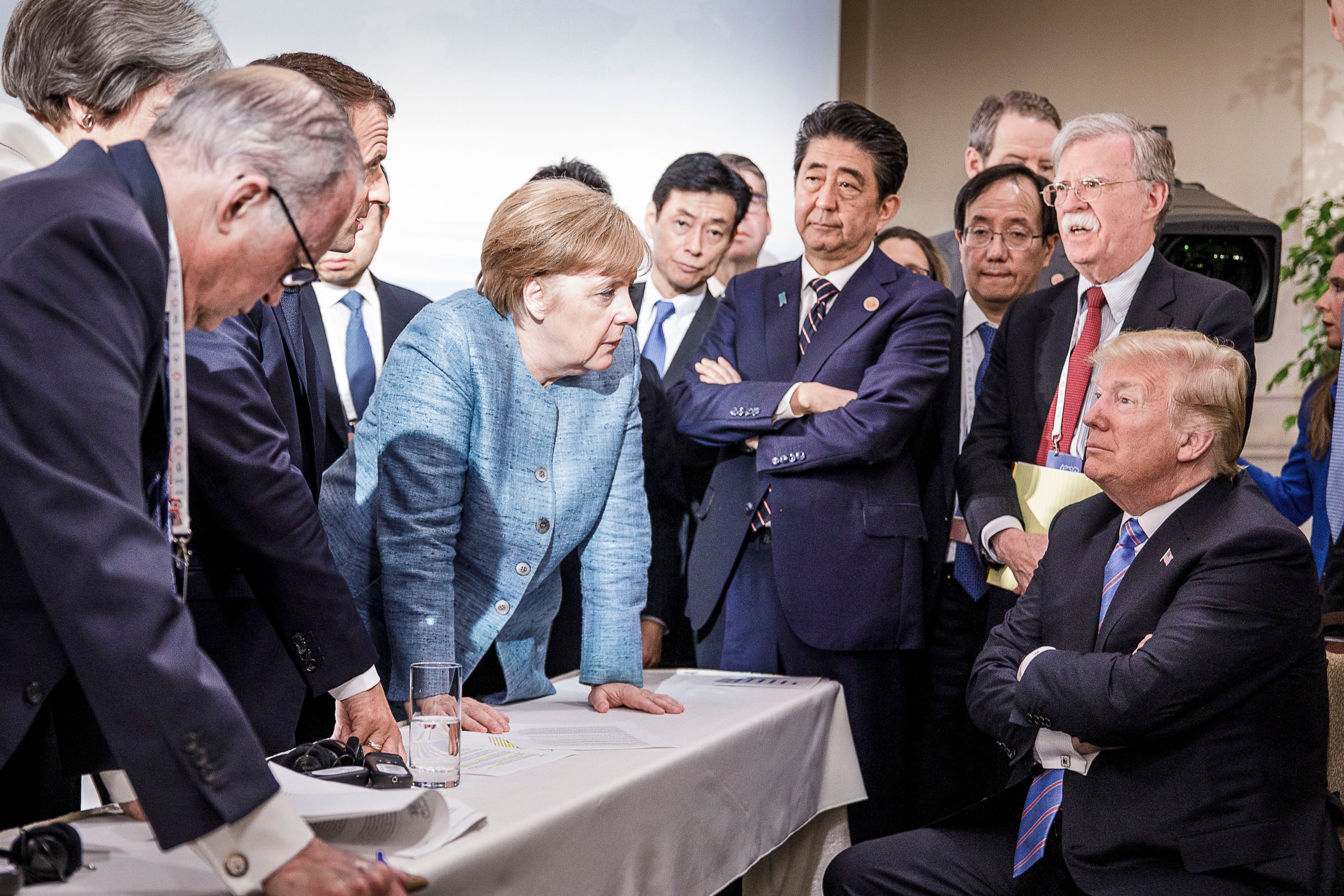
Politically, she was a construct of her predecessor as leader of the Christian Democrats, Helmut Kohl, the outsized, jolly figure whom the British may remember as the man who once pretended to have a pressing political meeting in order to avoid having to be talked at by Margaret Thatcher when they bumped into each other on holiday in Switzerland. The British prime minister later discovered him alone in a coffee shop, contentedly tucking into a large cream pastry.
To Germans, though, in his day he was a colossus in other ways, and the man who oversaw the reunification of their country. By the time the Berlin Wall came down in 1989 and new political movements had sprouted in the old East Germany, Merkel, then in her mid-thirties had gravitated to the Christian Democrats, and caught the eye of this wily old machine politician. Short of East German talent – the old leaders were all inconveniently communists, after all – and with few women in senior positions in what was still a somewhat chauvinistic political culture, Kohl adopted and actively promoted the obviously clever and serious Merkel. In the first post-unification free elections she was elected a Bundestag member for her home territory of Mecklenburg-Western Pomerania in the old East Germany, north of Berlin and stretching along the Baltic coast. She was immediately appointed by Kohl to be minister for women and youth, and shortly after deputy leader of the party, no less. She was promoted to be minister for the environment, nature conservation and nuclear safety, an early apprenticeship in green politics. By 1998, when Kohl’s party lost to the Social Democrats led by Gerhard Schroder, she was one of those who was in a position to succeed her old sponsor.
Unassuming as she is – in manner, speaking style and personality as remote from Trump, Boris Johnson or Emmanuel Macron as can be – she felt her duty was to defend the values she had championed through her long political career
The defeat, after 16 years in power, and a series of revelations about CDU corruption determined for Merkel that Kohl should quit, and, soon enough, when similar scandals overwhelmed Kohl’s successor, she ousted Wolfgang Schauble (who was later to serve with her mostly amicably as her minister of finance). The next man to be the leader of the German conservatives, Edmund Stoiber, just failed to defeat Schroder in a general election, and he too was out. Then, already head of the party machine, it was Merkel’s time, after she’d turned 50. Throughout this time, straight-dealing and quiet as she appeared, she also showed a streak of ruthlessness, knifing Kohl in the front through an open letter, signed by internal opponents, urging to him to leave politics, and her party to “cut the umbilical cord”. She also succeeded in outmanoeuvring or outclassing her male rivals – “Angie the Snake” was the nickname, and there was no shortage of sexist commentary about this unusual (ie female) politician and prospective Kanzerlin. She and the clique she gathered around her had no doubt that they could break the mould, and many of them are still with her to this day. Although sometimes seen as a German answer to Tony Blair, Schroder lacked his counterpart’s political fights, and was unable to prevent a CDU comeback under Merkel in 2005. She made her own luck, for sure, and stood out because she actually fulfilled the criteria of basic honesty in public life. No doubt she’d have risen to the top, but there’s no doubting either that she was Kohl’s protégée, and it did her no harm, even after his fall.
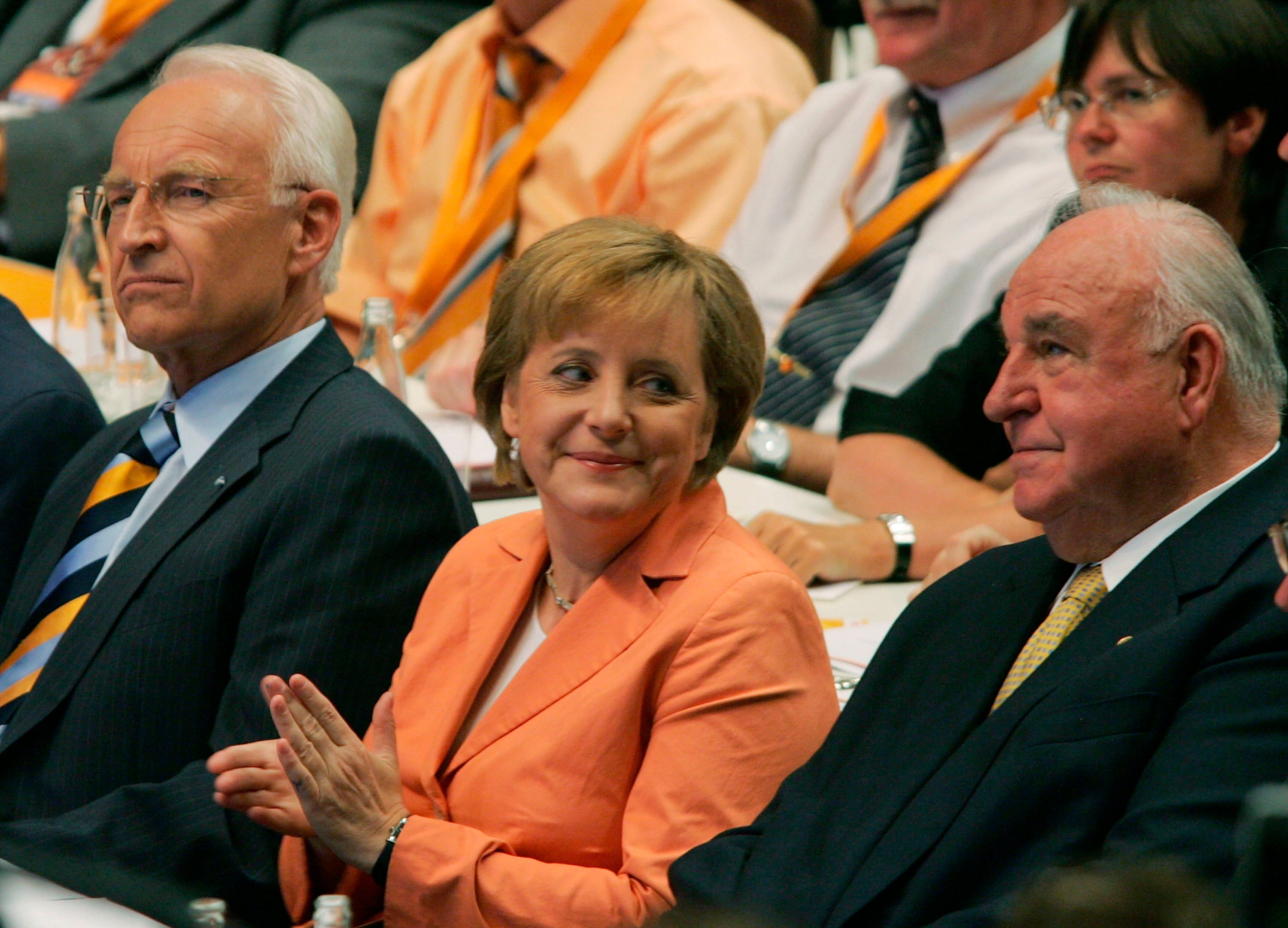
When she became chancellor for the first time (of four administrations in all), it was symbolic in more ways than one. For not only was she the first female leader of the country, but the first to emerge from the old east, and at a time when the painful and expensive process of what the British might now call “levelling up” was ongoing. It made it easier for the east to look the west in the eye, and harder for the old west to look down on the old east. She was soon to become a symbol and powerful engine of a wider quest for unity, the European Union.
The second thing that made Angela was Europe – an idea and a cause that is still an article of faith in mainstream German politics and civic life, one that is unimaginable in Britain. She didn’t always get all her calls right, and she and her government remain reviled in Greece, but somehow she helped the European Union navigate an untidy course through successive banking crises, sovereign debt crises and a threat to the viability of the euro itself. She worked her way through it in her usual scientific way. Her habit is to consult her advisers and assess each of the possible solutions to some problem, such as how to stop Greece or Portugal going bust. Each is “stress tested”, now a German phrase associated with Merkel, until there is no alternative left – the alternative-less approach, or alternativlos. A decade ago, it’s worth remembering, many felt the euro and the EU itself was about to collapse, and few would have thought it would still be here by the 2020s. It is down to Merkel, and a mixture of huge loans and austerity, that it has secured its survival.
She managed to be the third best student of the Russian language in the country, for example, without getting indoctrinated by Marxist-Leninism (where her grades were unusually mediocre)
She was not, of course, able to stop Brexit, but she never pretended she could, or that she was even enjoined to do so. When David Cameron, then prime minister, invited Merkel to London on a buttering-up exercise, his spin doctors suggested she was about to concede the major changes in EU treaties he needed to quieten his backbenchers and win the subsequent, 2016, referendum. She enjoyed tea with the Queen, and was also honoured with an address to both chambers of parliament. Yet she took the opportunity to tell her British audience that although she had heard the rumours that she was about to use her speech to present the prime minister with some fundamental changes to the EU, those who hoped that way would be “disappointed”. And so he was. Merkel’s instinctive Europeanism meant she couldn’t weaken the integrity of the single market, and of course she was not willing to offer the same concessions the British sought after the referendum, as Theresa May and Boris Johnson were to discover. Perhaps she didn’t make herself clear enough to the British, and they assumed her public opinions were different from her private calculations, in the way they usually are on this side of the channel; or perhaps the British made scant effort to understand the culture of Germany and the CDU, but the results are with us to this day. She didn’t throw Cameron a bone because she couldn’t and wouldn’t.
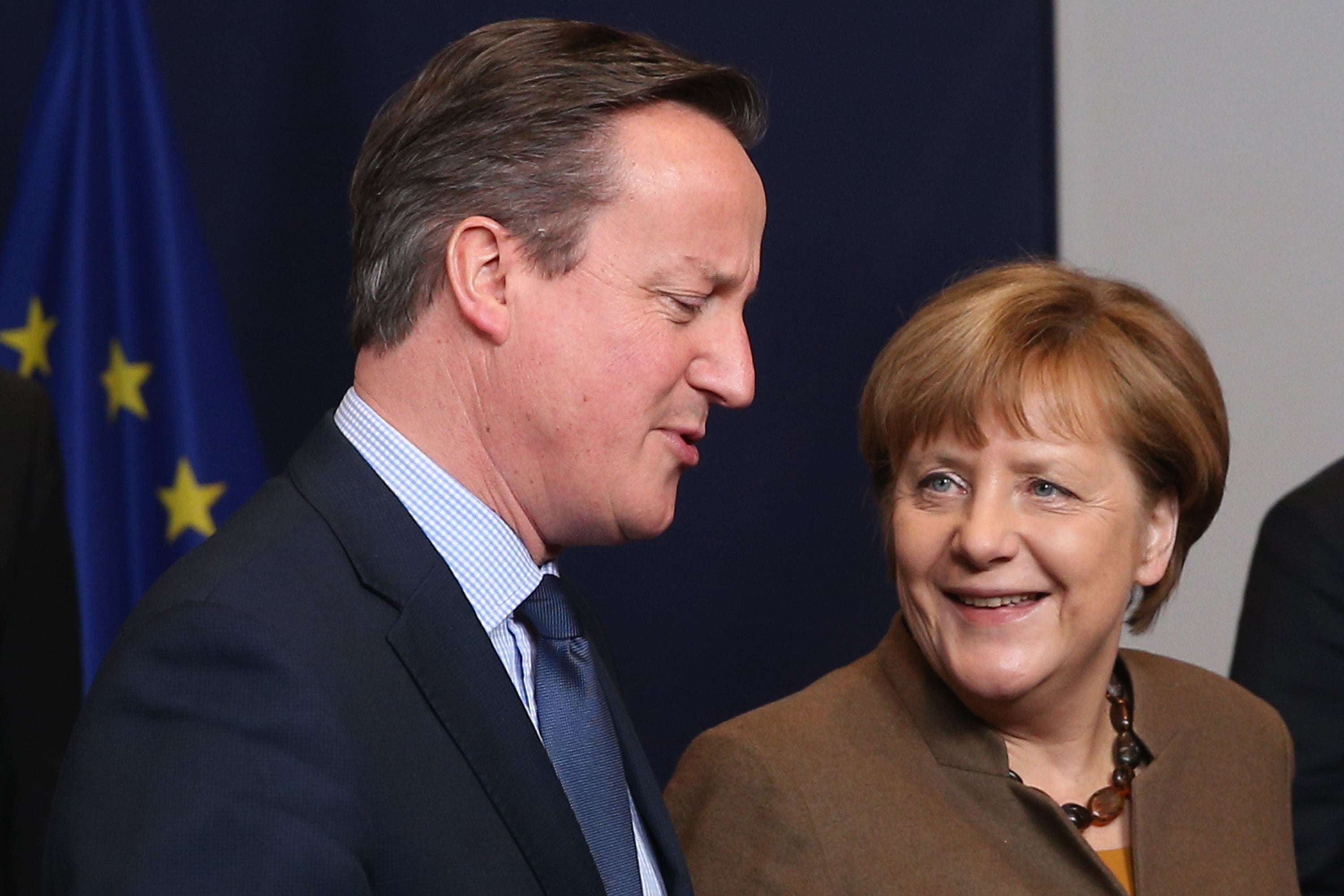
Merkel was also made by Merkel – her family and upbringing in East Germany. How so? Growing up as the daughter of a Lutheran pastor in the godless German Democratic Republic, a Soviet-occupied satellite state, she had to make the best of it, and it possibly brought out the best in her, and certainly gave her a perspective that no other leader in a major western economy has, of growing up in a dictatorship and a police state. Like everything else,she just got on with it. She managed to be the third best student of the Russian language in the country, for example, without getting indoctrinated by Marxist-Leninism (where her grades were unusually mediocre). From her subsequent recollections, it seems she was conscious of the reality of life in this “socialist” society, even though she was effectively obliged to join the official “socialist unity” youth movement, rising in her late teens to be a local director of culture and propaganda. This was later used against her, but there’s obviously no sign of her being a Russian patsy, beyond the usual accommodating attitudes common among the German ruling classes. She has, though, also scolded Vladimir Putin as “inadequate” when he brought his pet labrador along to a meeting with her (she has a fear of dogs after an attack in her forties). She excelled at science, and after a typically long German university education ended up writing a dissertation entitled “Investigation of the mechanism of decay reactions with single bond breaking and calculation of their velocity constants on the basis of quantum chemical and statistical methods”. It sounds even more stern in German: “Untersuchung des Mechanismus von Zerfallsreaktionen mit einfachem Bindungsbruch und Berechnung ihrer Geschwindigkeitskonstanten auf der Grundlage quantenchemischer und statistischer Methoden”.
The abdicating Queen of Europe also has a stable family life and supportive home. The first marriage of Angela Dorothea Kasner, to an Ulrich Merkel, a fellow physics student, was at age 23, and ended in 1982. Her second husband, Joachim Sauer, keeps a submarine-like profile and is an academic chemist. They met in 1981, married only in 1998, and had no children. She seems to have enjoyed robust good health, apart from a series of strange uncontrollable whole-body shaking incidents in 2019. They appear to have passed.
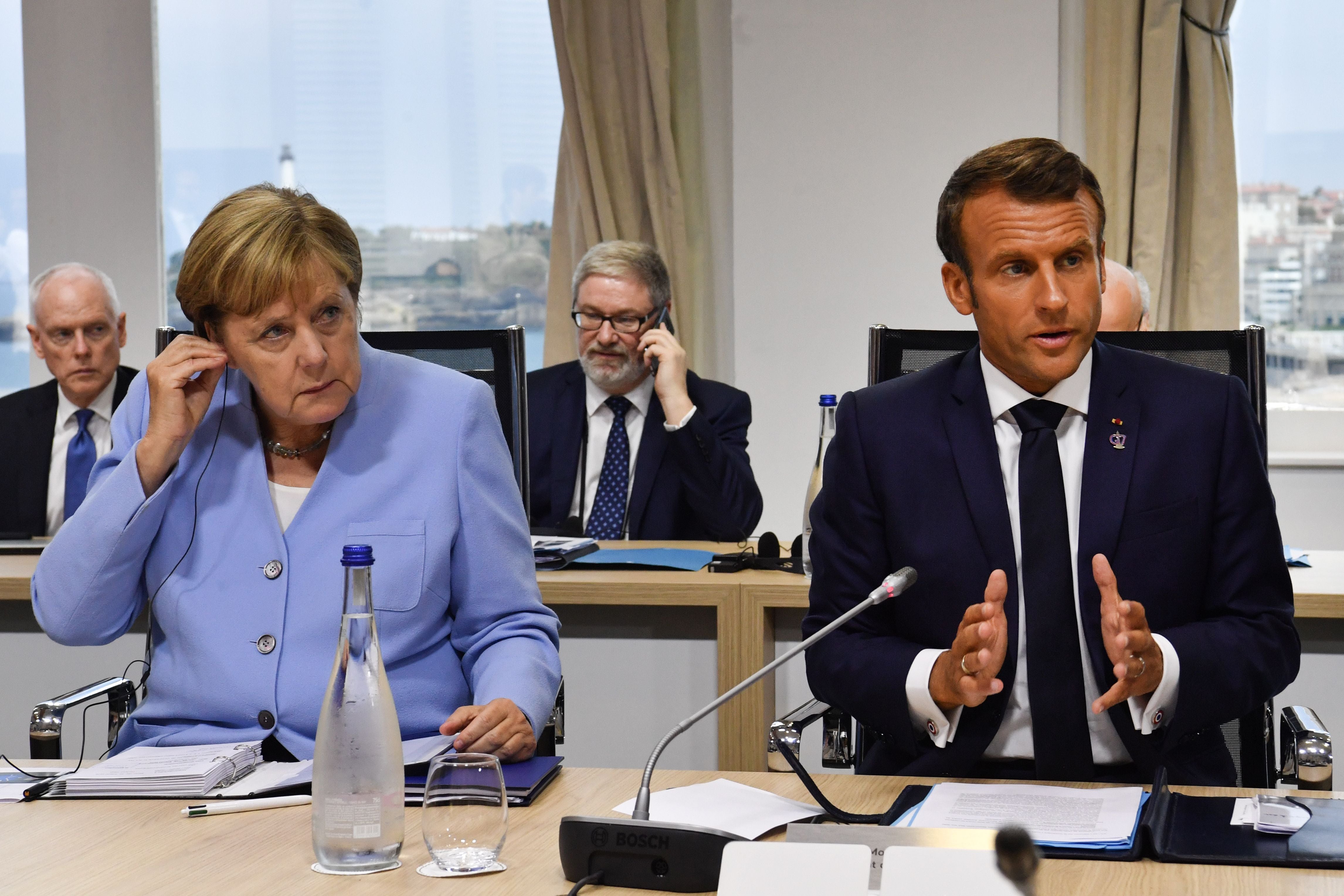
She is a leader, even though her legacy is hardly flawless. Critics say Germany lags behind in digital technologies, has a looming demographic welfare crisis (though ameliorated by recent inward migration), and that the German party system is fragmented and increasingly unstable. Yet she would probably win another term if she’d chosen to run again.
“Paradox” is a word that usually has to work quite hard with most politicians, who tend to be more one-dimensional than their image makers would like. In Merkel’s case the ironies and contradictions define her. Her stature in world politics belies her unprepossessing appearance (she was described as “Droopy’s long lost sister” by one cartoonist). Her sensitive political antennae and natural caution didn’t prevent her taking a huge gamble in allowing the Syrian refugees in. Her familiar look, the pudding bowl hair, the boxy jackets and black slacks, the hands held in a sort of diamond shape don’t shout “charismatic global leader” like, say, the exquisitely groomed Macron or Justin Trudeau, let alone the bizarre tangerine apparition that was Trump – but there she is, leader of the free world. Now, she says, she might try gardening, perhaps because she’s worked out that’s the best alternative. She’ll probably be quite good at it.




Join our commenting forum
Join thought-provoking conversations, follow other Independent readers and see their replies
Comments